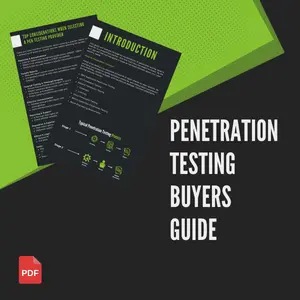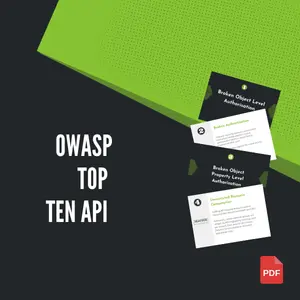What is a Microsoft Cloud Security Review and Why is it Essential?
A Microsoft Cloud Security Review, particularly for Azure, is a critical process for ensuring the security and integrity of your cloud infrastructure. With the growing adoption of Azure by corporations and organisations, it’s crucial to move beyond the default configuration settings that are often prioritised for functionality over security. These default settings, while convenient, can inadvertently open doors to cyber threats. Our review process rigorously evaluates your Azure environment to identify and correct such misconfigurations and unsecured settings.
An effective review in Azure goes beyond basic checks. It involves a deep dive into your Azure deployment to detect vulnerabilities, whether due to initial setup, use of insecure default configurations, or changes made post-deployment. This comprehensive review is essential in safeguarding your organisation from increased cyber attack risks, ensuring your cloud operations are secure, efficient, and aligned with Microsoft and industry best practices.
What are the Key Features of a Microsoft Cloud Security Review?
Our comprehensive Microsoft Cloud Security Review focuses on several pivotal aspects of your Azure environment to ensure security and efficiency:
Securing Network Architecture Robust Identity & Access Management Control of Privileged User Access Ensuring Data Safety Management of Digital Assets Database Security Assessment
Monitoring and Detecting Threats Preparedness for Security Incidents Managing Security Posture and Vulnerabilities Endpoint Protection Backup Solutions and Disaster Recovery Planning Alignment with Organisational Governance
How is a Microsoft Cloud Security Review conducted?
The process of conducting a Microsoft Cloud Security Review for Azure involves several key steps:
- Initial Assessment: We start by understanding your current Azure configuration and defining the scope of the assessment, ensuring all critical components are covered.
- Configuration Analysis: Our team conducts a thorough examination of the configurations of your Azure services, looking for security gaps and potential improvements.
- Compliance Checks: We evaluate your Azure setup against industry standards and best practices to ensure compliance with relevant regulations and guidelines.
- Security Auditing: Utilising advanced tools and techniques, we identify potential security issues, such as unprotected data or overly permissive roles.
- Reporting and Recommendations: Our findings are compiled into a detailed report, highlighting identified issues and providing actionable recommendations for bolstering your Azure security.
Penetration Test Reports, Delivered.
Our comprehensive, professional reports clearly communicate risks, provide detailed remediation guidance, and demonstrate compliance with industry standards. Our deliverables are available through the Sencode Portal or accessible via a downloadable PDF.
Who should get an Azure Penetration Test?
Determining who should invest in an Azure Penetration Test is crucial for maintaining robust security in cloud environments. Azure Pen Testing is particularly important for organisations that:
- Handle sensitive data: Companies dealing with sensitive information, such as financial records, personal data, or intellectual property, should undergo regular Azure Penetration Testing to protect against data breaches.
- Operate in regulated industries: Organisations in sectors like healthcare, finance, and government, where compliance with strict regulations is mandatory, need these tests to ensure they meet industry-specific security standards.
- Use the cloud extensively: Businesses that rely heavily on Azure for their operations should regularly test their cloud infrastructure to identify and mitigate potential vulnerabilities.
- Recent changes made in the cloud: After significant changes or updates to their Azure setup, companies should perform Azure Penetration Testing to ensure new configurations do not introduce vulnerabilities.
By proactively identifying and addressing vulnerabilities, businesses can safeguard their operations and maintain trust with their customers and stakeholders.
Contact a consulting team member by phone, email, or pigeon post. We will then discuss whether we can help you and arrange a scoping meeting to discuss your requirements.
In the scoping meeting, our team will discuss your requirements in further detail. Our team will ask questions in regards to the following:
Our expert consultants will discuss and finalise which digital assets you need testing in the scoping meeting. Based on the requirements, we will then assemble a project proposal and quote and agree on a schedule for conducting the security assessment. Our proposal document will include the following information:
The Penetration Testing starts. A member of our Penetration Testing team will liaise with a member of your company throughout the entire testing process. You will be the first to know if we have any questions or concerns. Our testing team will be on hand throughout the penetration test lifecycle to answer any questions or concerns. Our tester will:
A Penetration Test is useless without a well-written report. Our reports are written in plain English, concise, and thoroughly documented. The Penetration Test Report is typically furnished within 5 days after the testing phase is complete. If you are interested in seeing an example report, please contact our team.
Each report details the following:
At Sencode, we offer free retesting for every Penetration Test we conduct. You fix the issues; then we will verify they can no longer be exploited by an attacker. Our team will arrange a mutually suitable time to conduct the retest, after the remediation efforts have taken place. Our tester will follow these steps:
Our clients receive a testing certificate that can be shared with partners and customers, showing that their company takes security seriously. The certificate and document are designed to be easily digested by third-party suppliers, the document removes the technical details and can be safely distributed.
The Security Testing Certificate is available on request, after the retest has been complete. The security certificate shows:
Get in touch for a consultation.
Contact a consulting team member by phone, email, or pigeon post. We will then discuss whether we can help you and arrange a scoping meeting to discuss your requirements.
In the scoping meeting, our team will discuss your requirements in further detail. Our team will ask questions in regards to the following:
Explore Our Downloadable Resources
Contact us
Get a free, no obligation quote from one of our expert staff.
Frequently Asked Questions
Absolutely, Azure does permit penetration testing within its environment. Microsoft recognises the importance of security assessments and allows customers to conduct penetration testing on their Azure-hosted applications. It’s important to comply with Microsoft’s rules and guidelines during these tests to ensure they are conducted responsibly and without impacting the service for others. Azure users are encouraged to notify Microsoft before conducting any penetration tests to avoid any potential conflicts or misunderstandings with Azure’s own security protocols.



